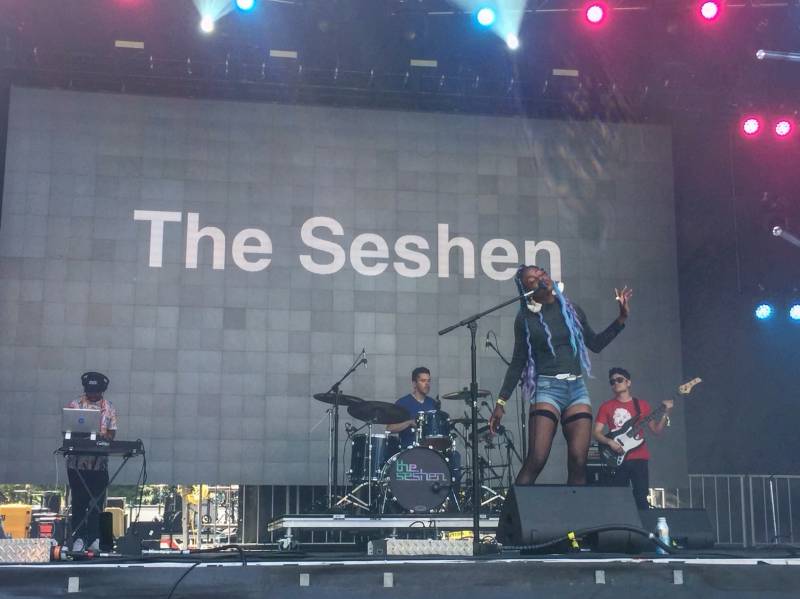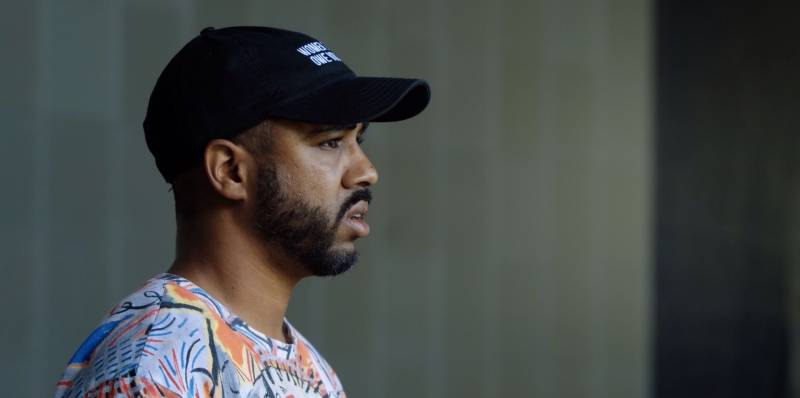I
n my last year as a teacher at Oakland School for the Arts, I was assigned to the old band room on the top floor of the historic Fox Theater, where each day, hundreds of students hustled through crowded hallways, singing, dancing and tuning their instruments. It all felt like a too-real version of High School Musical, and I loved it.
My class was the only academic space in an obtuse corner of a hallway. And the room next to mine wasn’t really a room—it was a closet-sized audio production studio, tucked between blue lockers like a hidden passageway at Hogwarts.
I hadn’t paid much attention to what went on in there until I realized that the newly hired instructor, Kumar Butler, was also a young man of color, wearing an Oakland A’s cap. After a few conversations, it was clear that Butler—born and raised in Berkeley and Oakland with an Indian mother and Black father—was rooted in himself, his work and his community. It didn’t take long for us to connect outside of class, and before I knew it, I was invited to see his band, The Seshen. I caught their shows at a warehouse in West Oakland and at Outside Lands, where they were openers for Flying Lotus. They turned out to be legit, with a solid following. (The band even made KQED’s Best Bay Area Albums of 2020 list.) Yet Butler was an unassuming, if not quiet, member of the group.

Despite his rising profile, Butler exuded genuine humility and creative talent, though—as the electronic producer in the six-person group—he was quite literally in the background. And that’s where he preferred to stay.
That’s why I was excited when I heard Butler had dropped a debut solo EP—appropriately titled solidarity. The project is a radical rethinking of how music in 2021 should be experienced: a tender mix of meditative instrumentals, layered with words from revolutionary speakers about social topics that don’t always get center stage in a profit-driven music industry. In each track, there are no lyrics besides the activists’ words regarding racial justice, police violence, trans rights and the dismantling of prisons. It feels necessary for the times.


